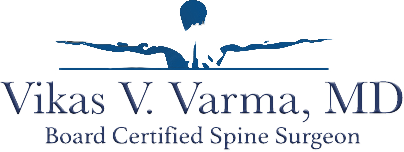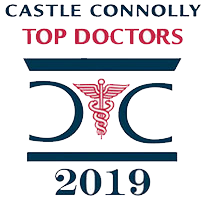3 Common Spine Surgery Myths
Back and neck pain are two of the most common issues amongst both men and women across the country. And as a result, spinal care treatment has drastically increased in demand over the years. According to Dr. Varma, the top neck pain specialist Manhattan has to offer, due to the sensitive nature of the spinal region, it is important for patients to be diligent when seeking treatment – often going through a battery of options in order to find the method that is right for them. One of the biggest issues with these types of issues is that spinal conditions are often progressive in nature, meaning that when left untreated, they will only get worse and injuries can spread throughout the area – leading to residual pain and even worse conditions affecting nearby bones, joints and soft tissue. Despite his status as the best orthopedic spine surgeon New York has to offer, Dr. Varma recommends patients seek non-invasive methods of treatment first, and only when they have proved to be unsuccessful, should they even consider giving surgery a try. However, as patients go through the battery of non-surgical treatments such as pain relievers, physical therapy, massage therapy, and even alternative medicine such as acupuncture and meditation – those with severe issues will find that their issues still won’t go away. As the top neck pain specialist Manhattan surgeon Dr. Varma finds many patients are adverse to surgery, and while there are definitely complications possible and always an inherent risk with going under the knife – much of their trepidation has to do with the myths and misconceptions being spread about spinal surgery. Often, even for the best orthopedic spine surgeon New York patients prove to let the lack of education on the subject cloud their judgement. To truly make the right decision about your spinal care, it is important that we educate ourselves as much as possible on the subject. Here are a few of the most common misconceptions about spine surgery and the true facts behind them.
· Spine Surgery is ALWAYS a Majorly Invasive Procedure
While this might have been the case in years past, as the top neck pain specialist Manhattan has in practice, Dr. Varma specializes in performing minimally-invasive spinal surgery variations. These variations on traditional spinal surgery can often provide patients the same high-level results, without the need for a long, drawn out recovery period and far fewer side effects, risks or complications. The term minimally-invasive is used in spinal surgery to represent procedures that use fewer incisions, that are smaller in size and use methods that don’t damage as much hard and soft tissue. This makes the procedure faster and require less time for recovery than major surgeries. They also don’t cause as much scarring and have a lower risk of infection or post-surgical pain. Minimally invasive methods can be used to treat almost every spinal condition causing neck or back pain.
· Recovery is ALWAYS Painful
Piggybacking off the first misconception, the fact of the matter is that spine surgery other facets of healthcare has advanced quite a bit in recent years. Patients no longer must experience a painful, long and arduous recovery period – in fact many procedures are done outpatient, and patients can return home immediately after – only feeling minor discomfort that will only last about 3 days to 6 weeks depending on the procedure.
· Surgery is Necessary
For many spine patients, the fear is that they will undoubtedly have to undergo surgery, and their surgeon will only recommend surgical methods of treatment. Well as we previously stated, despite being the best orthopedic spine surgeon New York has practicing, Dr. Varma will only recommend surgery as an absolute last resort. Despite how advanced surgery has become, the spine is still a delicate region and therefore, complications and risks are always a possibility. Considering this, and the fact that many patients can find relief using alternative means, we always recommend trying everything possible including physical therapy, pain relievers, steroid creams & injections, acupuncture, anti-inflammatory drugs, and much more. Only when these do not work, should surgery be considered.
For more information on spinal surgery please contact DR. VIKAS VARMA today.







